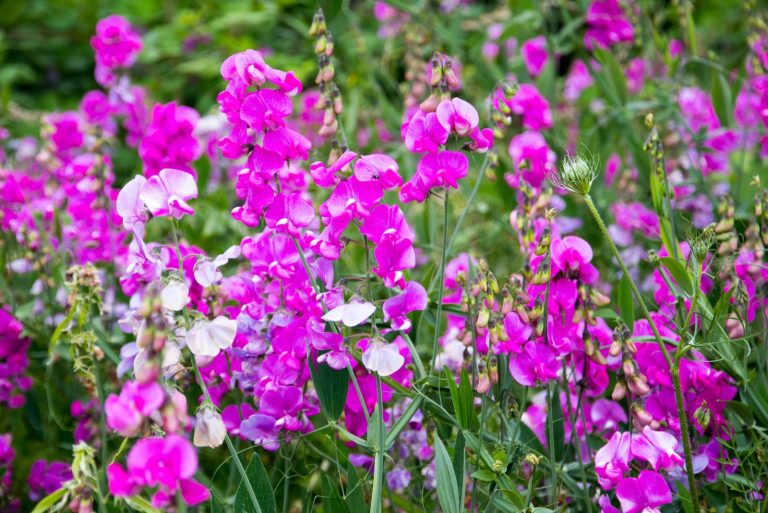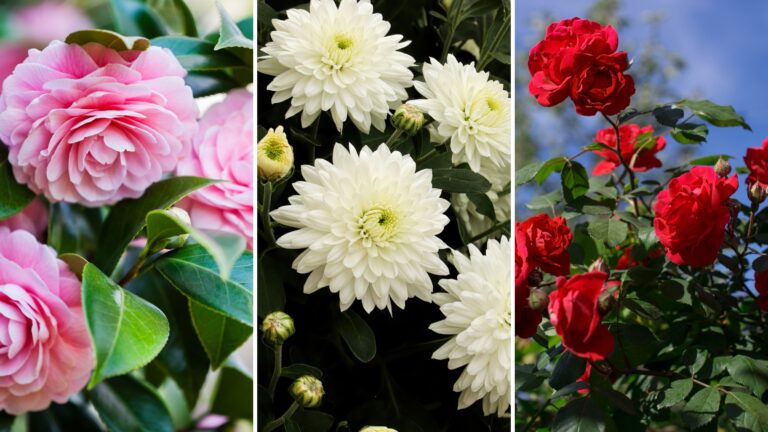The Meaning Of Snake Plant And Its Cultural Symbolism
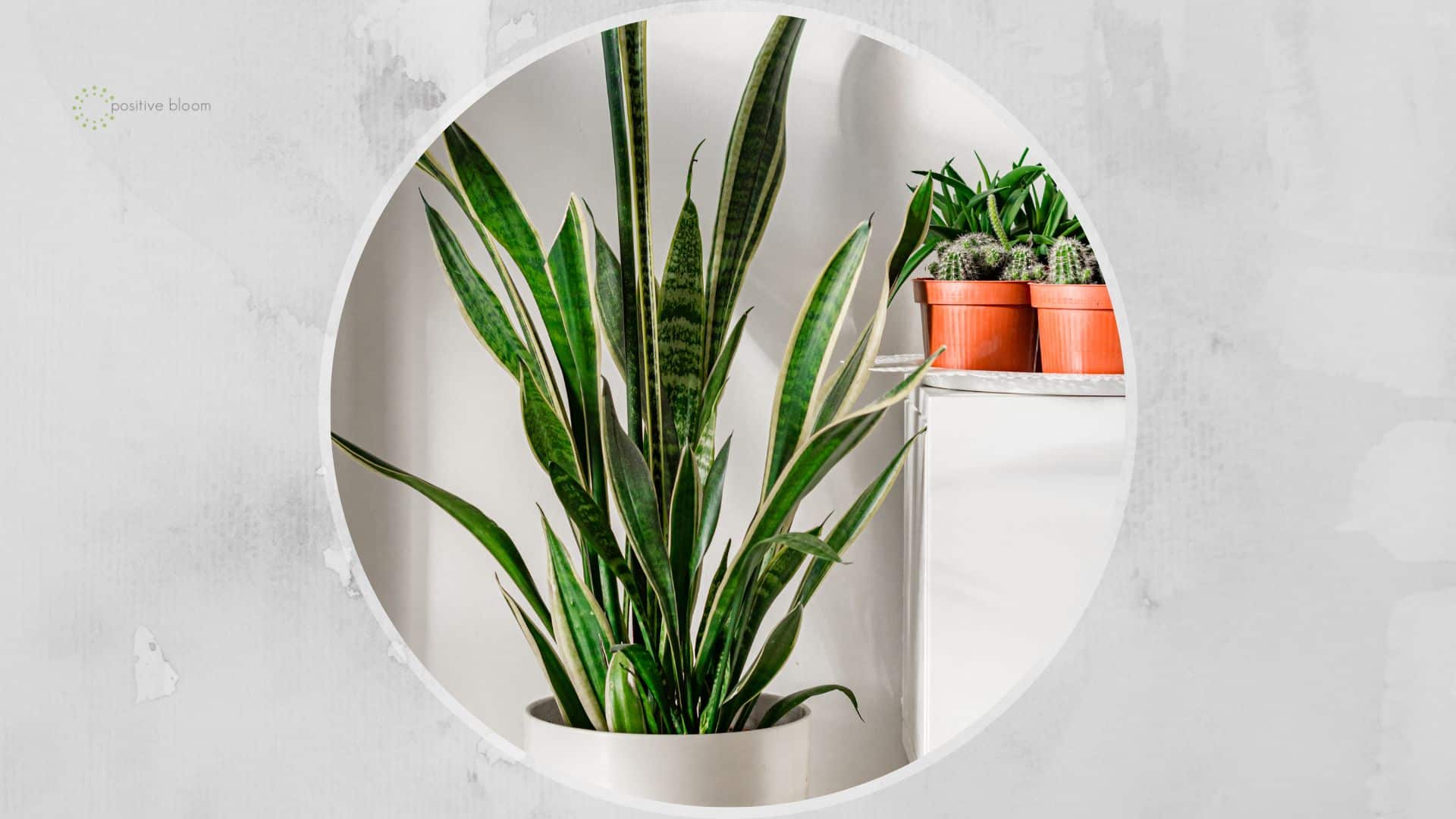
Most people don’t connect snakes with something positive, so the question of whether snake plants bring bad luck is completely legit. If we add the fact that this plant also has a very popular nickname that might also cause alarm (“mother-in-law’s tongue”), we end up with a pretty complicated situation.
However, the real story about snake plants is completely different.
So, I’ll first tell you more about what snake plants mean, and then we’ll see how it reflects in Feng Shui and Vastu. We’ll also go through the cultural significance of this plant, so make sure you keep reading to find out everything!
Let’s get started!
What Is The Meaning Of The Snake Plant?
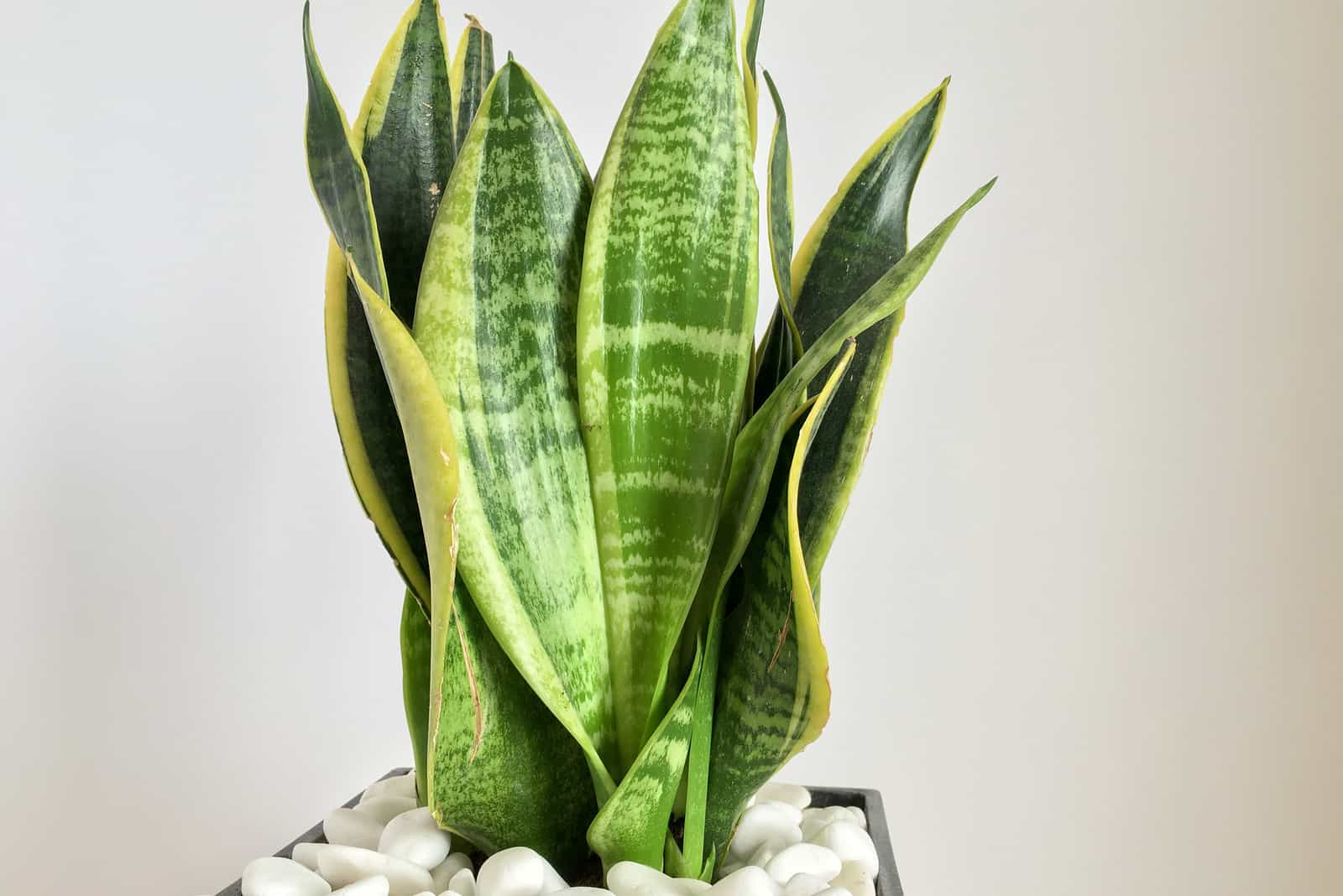
The first question we need to answer is if the Sansevieria plant brings good or bad luck. I have good news for you, this lovely plant doesn’t bring bad luck and it has a positive meaning! It symbolizes purity, positivity, and good luck.
One of the best things about snake plants is that they have air-purifying features, so they’ll remove harmful substances such as formaldehyde, benzene, and toluene from the air. (1)
It’s also believed that the snake plant flower enhances creativity, so adding a snake plant to your home is an excellent idea!
Additionally, these plants help connect you with nature because of their fascinating green color!
What Does The Snake Plant Mean In Feng Shui?
Even though many people might think the opposite, the mother-in-law’s tongue is an excellent Feng Shui plant.
The question is, why do people think it brings bad luck? Well, it’s mainly because of the shape of Sansevieria plant leaves, which are spiky and often connected with pain.
But the Sansevieria plant will attract good luck if you put it in the right spot according to Feng Shui principles.
The leaves have an upright growing habit, so they represent personal growth and positivity. In Feng Shui, these are referred to as wood elements.
Where To Place A Snake Plant
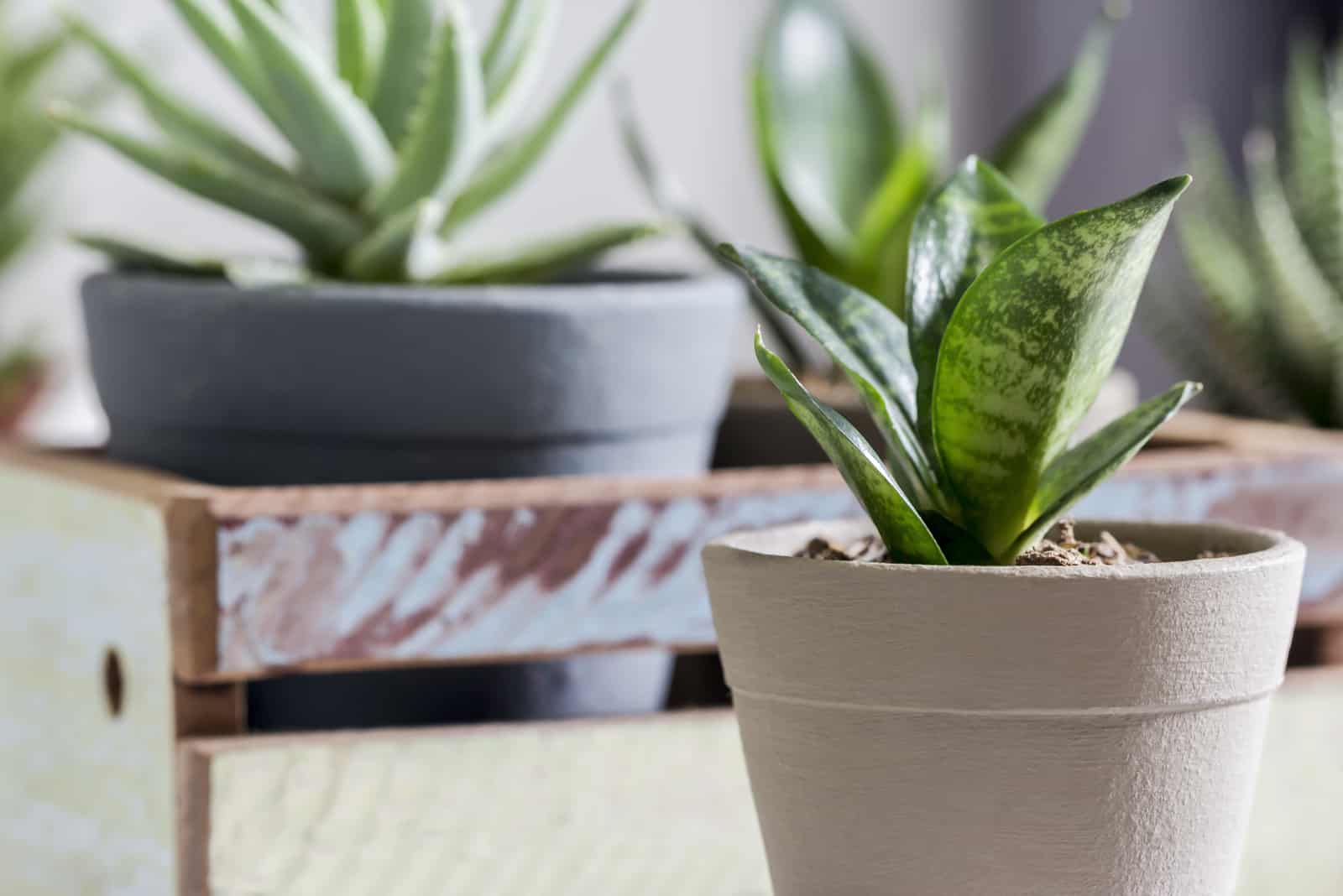
When looking for the ideal spot for your prized mother-in-law’s tongue plant, you need to follow the Bagua map. This is actually the only way to activate the powers of snake plants when it comes to Feng Shui. Luckily, there are many spots in your home where you can put your snake plant and attract good luck.
For instance, you can put your Sansevieria in your office for a creativity boost. Another reason your mother-in-law’s tongue is an excellent plant for offices without windows is that it tolerates lower light levels, and if your office doesn’t have access to natural light, your snake plant will still be happy and healthy.
Locations with southern, eastern, and western exposure will also activate snake plant energy and make you more creative and motivated.
There are three essential things to understand about Sansevieria plants and Feng Shui. First, if you want to get the best out of this practice, your snake plant must be completely healthy because diseased plants bring bad luck.
Second, never use a fake Sansevieria or any other fake plant, because they can’t activate any energy.
And third, if you have pets, make sure your Sansevieria is out of reach because it’s considered toxic to both cats and dogs. (3)
Don’t worry, maintaining snake plants isn’t hard and they are very forgiving.
Snake Plants In Vastu
Sansevierias play an important role and have a lot of positive features in Vastu. If you find a good spot, these plants will ensure harmony in your home, bring you success in your career, and attract wealth.
In Vastu, similarly to Feng Shui, you can activate the energy of your snake plant if you put it in a spot with southern, eastern, or western exposure.
Vastu experts claim that you should keep your mother-in-law’s tongue on the floor and never place it near other plants because it can activate bad energy.
Snake Plant Cultural Significance
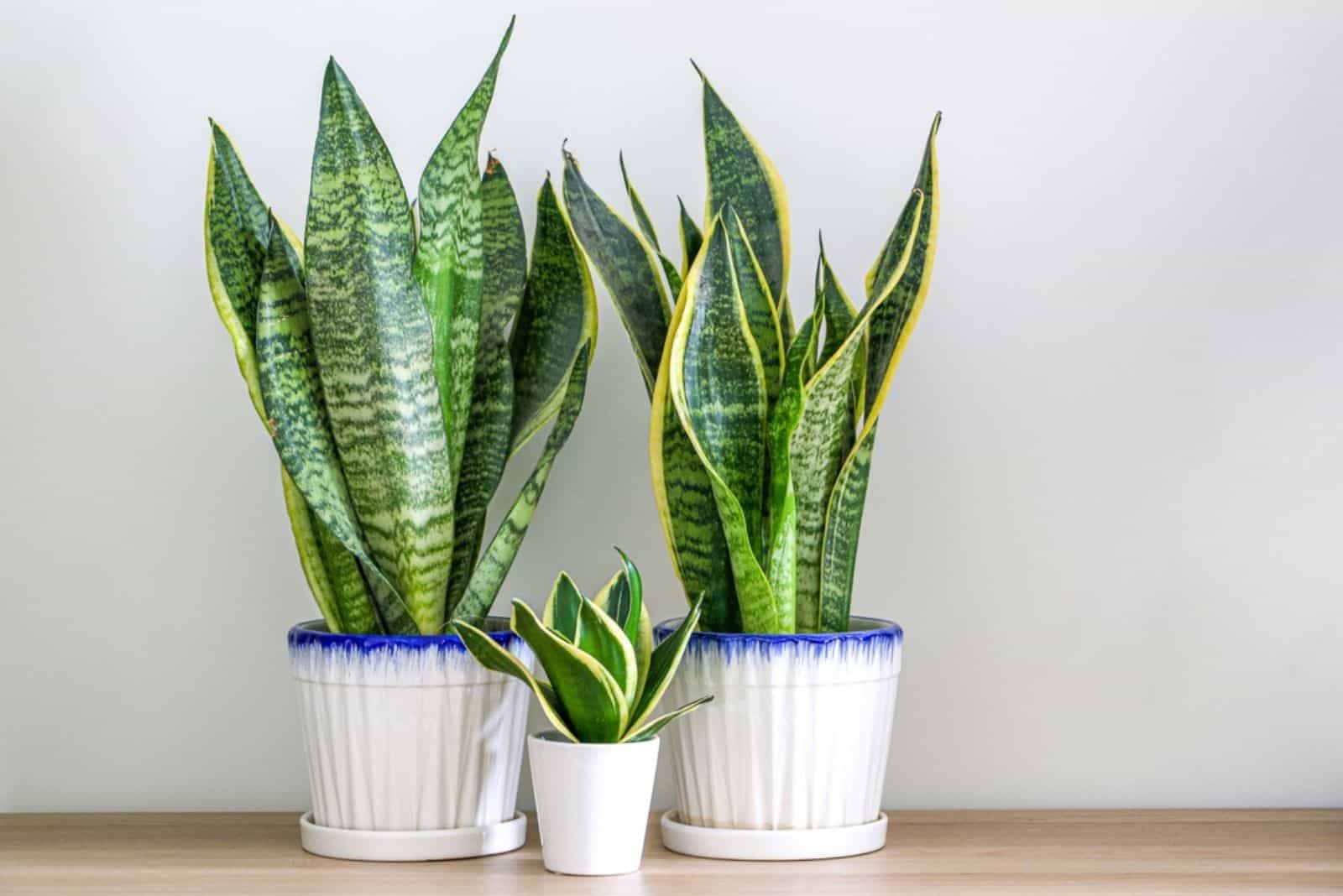
We’ll start by describing the cultural significance of mother-in-law’s plants in China. For Chinese people, Sansevierias are special plants because they have 8 virtues, including loyalty, love, and honesty.
If you happen to visit China, you’ll notice snake plants in many houseplant collections and you may also be gifted one.
In Korea, the mother-in-law’s tongue is frequently given as a gift, especially to people who want to start a new business or are moving into a new home.
Snake plants also have a role in West African cultures. This plant is used in many rituals because it is believed that it protects you from evil.
Uses Of Mother-In-Law’s Tongue
Sansevieria plants have robust fibers, which is why they were used in bowstring production.
In recent research, it has been found that snake plants can be used to fight Pseudomonas aeruginosa, (3) a pathogen that’s responsible for various health complications, such as folliculitis. Scientists have begun more studies on the health-related properties of snake plants, and I’m sure it has even more benefits to be discovered.
Snake plants are oxygen suppliers, which is one of the main reasons growers choose these plants.
Another reason is that these plants are super easy to maintain, so many beginner growers choose them as their first ornamental plants.
Sansevieria And The Zodiac

If you’re into astrology, I’m sure you’re eager to learn more about the snake plant and its corresponding zodiac sign.
The snake plant can be connected to a sign which represents hardworking and determined people – Capricorn. Sansevierias are a nearly indestructible plant species that can survive in the harshest conditions.
Wrapping Up
Snake plants are one of the most common houseplants I recommend to novice gardeners. They’re highly adaptable, tolerate different light levels, and can survive long periods of time without water.
The meaning of snake plant is another reason you should grow these plants. Although many people believe that they are unlucky, now you know that having at least one in your home is more than beneficial.
It will remove toxic substances from the air, attract good luck and positivity, and boost creativity. Just keep it out of reach of pets because consumption can cause health issues.
Until next time!
References
1. Wolverton, B. C. (1989). Interior Landscape Plants for Indoor Air Pollution Abatement. NASA Technical Reports Server (NTRS)
2. Snake Plant. (n.d.). ASPCA. https://www.aspca.org/pet-care/animal-poison-control/toxic-and-non-toxic-plants/snake-plant
3. Dewatisari, Whika Febria & Nugroho, L. Hartanto & Retnaningrum, Endah & Purwestri, Yekti Asih. (2021). The potency of Sansevieria trifasciata and S. cylindrica leaves extracts as an antibacterial against Pseudomonas aeruginosa. Biodiversitas Journal of Biological Diversity.

